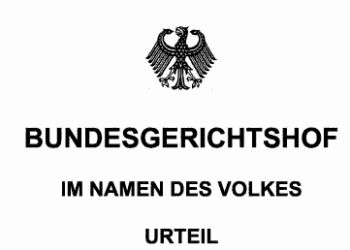This article addresses a specific issue in German law regarding the legal status of e-sports players. But it is also about the issue of professionalization of esports contracts, when you hire a player as an employee or simply give him a contract as a contractor, affects the planning, social security and sponsorship management of teams.
Due to numerous requests over the past few months, I decided to write a short article today about a growing problem in esports: should players on a team be employees or contractors?
First of all, it should be emphasized that under German law I can only provide more detailed legal information. Unfortunately, labor law is not harmonized in Europe, and therefore I can only make recommendations outside the Federal Republic of Germany, which are basically part of business development. However, I would very much appreciate feedback from colleagues in other countries and would be happy to add relevant information.
So what is better? An esports player who is employed as an esports team employee or is a contractor?
Well, the question is not so easy to answer, because both have advantages and disadvantages.
Benefits (to the team) of having an employee:
- As the “employer”, you have direct authority. Within the framework of an employment contract, it is possible to determine to a large extent when and where an employee performs an activity and what this activity should look like.
- During the term of the contract, a player cannot simply switch, support another team and the like.
- The services rendered by the employee are generally attributed to the team (“employer”). This applies in particular to the exploitation rights of copyright acts.
- The costs can be planned very well, as the salaries are contractually agreed and the social security institutions cover any losses. Employees are also covered by statutory accident insurance.
- Social and financial security often makes workers, and therefore actors, more productive and satisfied.
- Overall, employees are much closer to the team than a contractor can ever be legally bound.
Disadvantages (to the team) of employing an employee:
- Within the framework of notice periods, salary payments are obligatory and statutory notice periods must be observed. This applies in particular within the framework of the provisions on protection against dismissal. In addition, social security contributions and taxes are generally not insolvency-proof.
- Various employer obligations mean costs and administrative effort. For example, pay stubs, documentation requirements, employee protection regulations and more must be properly and regularly maintained.
- Employees are entitled to vacation, can sign up for regular sick leave, and have numerous other rights. For larger organizations, things like works councils and the like need to be considered.
- Other legal regulations such as the minimum wage must be observed.
The opposite is true for contractors in this regard. It is therefore rather difficult to retain people in the long term. This prevents things like transfer fees in principle. It is also difficult for sponsors to “sell” a certain continuity of a team, which is why regular sponsorship payments in larger sums are rather difficult to negotiate. Also, investments in a player, such as training, hardware, and the like, are sometimes more difficult to justify from a business standpoint when that player can move fairly easily to a competing team, and lockout or non-compete clauses are usually difficult to enforce.
Another problem faced by “entrepreneurs” is the largely unresolved legal issue of “bogus self-employment”, at least in the Federal Republic of Germany. This can lead to an enormous financial risk, especially for teams, which often only occurs 2-3 years after the activity, namely when a first social security or payroll tax audit takes place. If the tax office or social security agencies disagree with the team (or, in case of doubt, their legal advisors), often the only option is expensive court proceedings or very high additional payments.
In principle, it is now possible to obtain so-called “binding information” from the social insurance institutions as to whether or not an activity is to be regarded as subject to social insurance. However, this may take time and may also be negative. Thereafter, contracts must be amended and new binding applications submitted. A process that can also be very expensive.
There are many other considerations in favor of a regular employment contract, such as the tournament rules of some gaming providers. Other reasons for professionalization also lead to the need to refrain from all forms of a cooperation agreement.
If you decide to use a freelancer despite the above disadvantages, the corresponding contract should in any case be reviewed by an expert and the structures evaluated. Otherwise, the saved costs can quickly turn into a financial disaster.
This article is just a brief outline of the problems in e-sports. For more details, feel free to contact me at haertel@rahaertel.com. The most important thing is to think about the consequences of a particular contract. This includes legal issues as well as problems of a business nature and the professionalization of the team.























